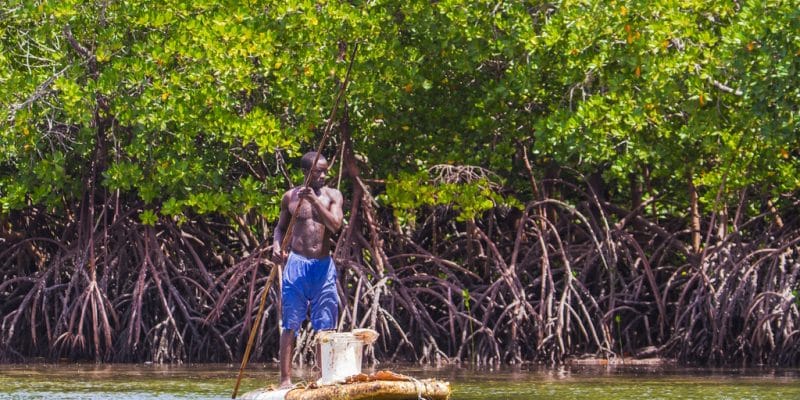Weakened by urban sprawl, oil spills and housing projects, Gabon's mangroves will regain their splendour thanks to a government strategy that begins with the selection of a mobile application to monitor their ecosystems.
The International Day for the Conservation of Mangrove Ecosystems, celebrated on 26 July, has not gone unnoticed in Gabon this year. As proof of this, a challenge has been launched to select the best mobile applications dedicated to monitoring this biotope on the Gabonese coast. The initiative by the Directorate-General for Aquatic Ecosystems is aimed at stepping up the fight against illegal construction, rubbish dumping and the dumping of wastewater on mangrove sites, particularly the Mindoubé site (near Libreville), which is under increasing threat.
“Applicants have two months from August 2023 to design their projects in triplicate. We will be looking at originality and innovation, as well as the practical impact on the environment. The designers selected will defend their solutions before a jury made up of biodiversity and digital experts and representatives of non-governmental organisations (NGOs),” explains the team led by Jean Hervé Mve Beh.
The winning digital solution will receive 500,000 CFA francs (762 euros) from the Gabonese Ministry of Water, Forests, Sea and the Environment, which is responsible for the Climate Plan and the Land Use Plan. It will map the mangroves (GPS coordinates) and enable Gabonese people to report any damage to their biotope in real time. This would be beneficial, because according to the World Wildlife Fund (WWF), mangroves prevent coastal erosion and flooding, purify water and shelter shellfish, among other functions.
Read also-GABON: A DNA-based technique makes it possible to count 95,000 forest elephants
These ecosystems are also considered to be carbon sinks, storing five to ten times more carbon dioxide (CO2) than tropical forests, according to a study by the Foundation for Research on Biodiversity (FRB) based in Paris, France. All these ecological virtues are motivating the Gabonese authorities to restore the 70 hectares of mangrove that this Central African country has lost between 2018 and 2021, according to official figures.
Benoit-Ivan Wansi






